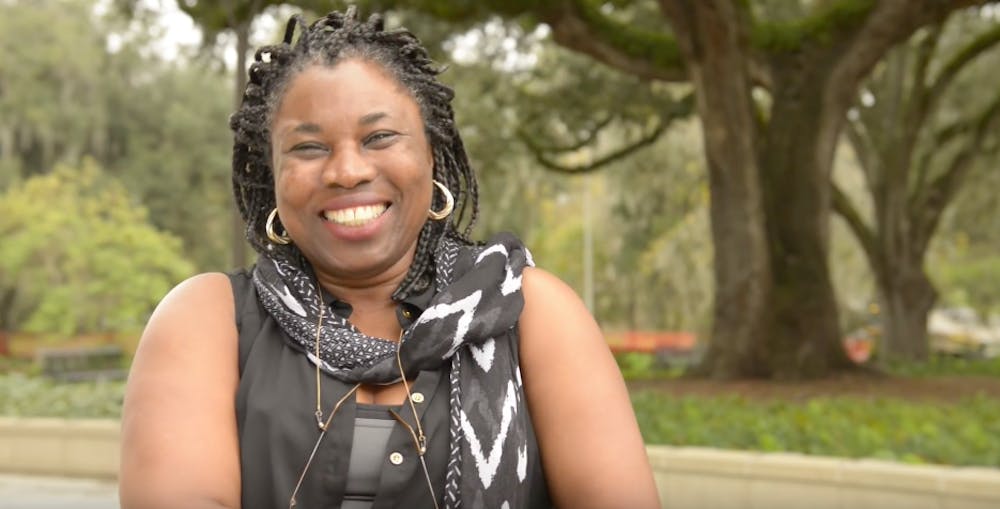Even in her absence, Dr. Mavis Agbandje-McKenna’s fierce dedication to science and research serves as an empowering example for women in science.
As a graduate student at Purdue University, she was the only Black woman in a conference to discuss virus development and gene therapy. At the time, the field was widely dominated by white male scientists, said Dr. April Burch, Agbandje-McKenna’s friend and colleague of about 20 years.
“She was like a beacon of youth and color and personality,” Burch said. “I was in awe of her.
She was so fierce, so outwardly confident, no matter what she was struggling with.”
Agbandje-McKenna, a UF Health biochemistry professor and structural biologist, died March 3 of a neurodegenerative disease. She was 57.
She died at home of amyotrophic lateral sclerosis, better known as ALS or Lou Gehrig’s disease, which is a progressive nervous system disease that causes loss of muscle control.
Agbandje-McKenna joined UF’s faculty in 1999, where she worked with research to develop disease treatment, according to her UF Health biography. Before coming to the university, she received her Ph.D. in biophysics from the University of London in 1989 and worked in different departments and laboratories in the U.S. and England.
As a female doctor herself, Burch said women in science struggle internally, but Agbandje-McKenna was just always “a light” in the field.
“Her laugh is something I will never forget,” Burch said. “No matter how stressful science got, and funding got, and competitiveness got, she always had her sense of humor.”
In 2018, Agbandje-McKenna received UF’s Innovator of the Year award for her work with AAV gene therapy, which uses engineered viruses to deliver working genes to a patient’s damaged cells. She said in a 2018 UF Health article that this therapy technique would be a step in developing an understanding of how viruses like these work with the human immune system.
In 2020, she received one of the American Society of Gene & Cell Therapy’s highest honors, the Outstanding Achievement Award, which is awarded to members of the society who have developed or achieved research success or made significant contributions to the gene and cell therapy fields.
Nicholas Muzyczka worked on gene therapy with Agbanjde-McKenna for close to 20 years at UF.
He said he was the first to volunteer to work with Agbandje-McKenna and her husband to study the biology of the adeno-associated virus (AAV) at UF. He said he admired how smart and quick she was.
“It took me 20 years to learn how to write a grant; it took her 2 months,” Muzyczka said.
He said Agbandje-McKenna would tell everyone he had done something nice by teaching her grant writing before she became experienced, but Muzyczka said Agbandje-McKenna would have easily learned on her own.
“She was just so smart. She managed to go through any type of problem,” he said. “I mean, after a few minutes with Mavis, problems seem to melt away.”
Anyone who went into her office or lab would always find her smiling and laughing, Muzyczka said.
He said Agbandje-McKenna was the most fun colleague he has had and will miss working with her.
She is survived by her husband Robert McKenna, their two adult children and the many friends and colleagues who knew and learned from her.
Contact Carolina Ilvento at cilvento@alligator.org. Follow her on Twitter @CarolinaIlvento.

Carolina is a second-year journalism major with a minor in sustainability. In the past, she covered stories and events for WUFT, and she is now reporting on Student Government for The Alligator. Carolina loves to do yoga and go to the beach whenever she isn't writing.






